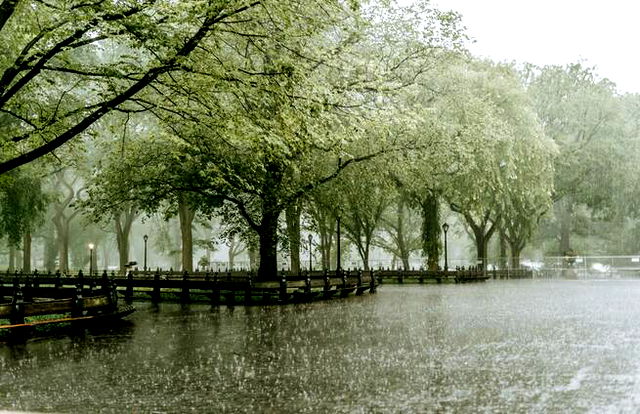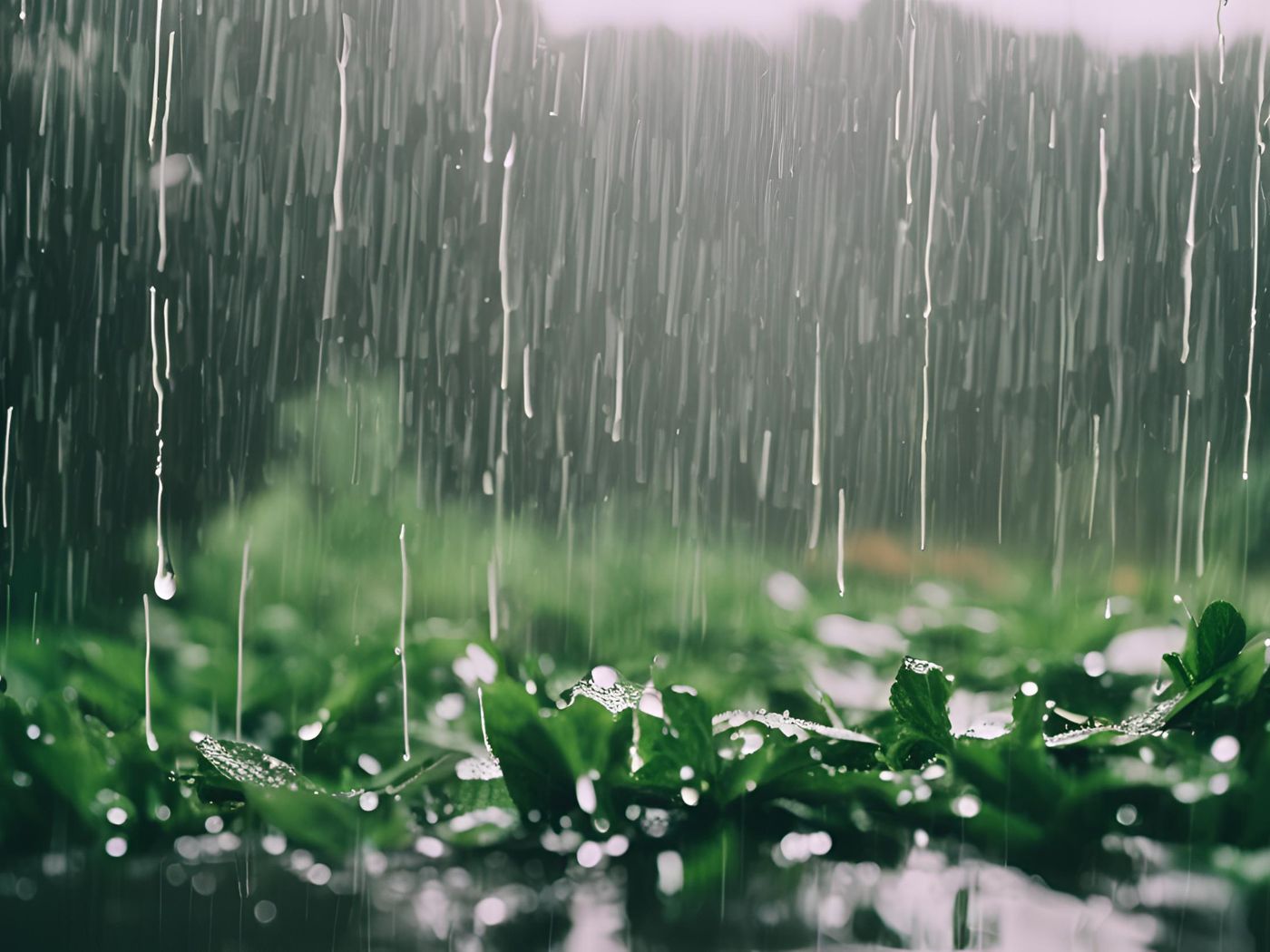- Calendar
- Calendar 2024
- July
- National Rain Day
National Rain Day
On July 29, the world comes to a standstill to celebrate National Rain Day as we appreciate and honor nature's one of the most amazing phenomena-the rain.
Rainfall is something that has been cherished and loved by people since history, as it has the power to improve life. However, the saying that too much of anything is not good is true, as dangerous floods and other disasters due to heavy rainfall have been mentioned repeatedly in history.
Despite the consequences, rainfall is important for organisms to survive, for crops to harvest and for earth to have a balance. More often than not, rainfall is beautiful scenery that one can't help but fall in love with.

The Origin Of National Rain Day
The history of rainy days goes back to the late 1800s, when a pharmacist in Waynesburg, Pennsylvania noticed a strange phenomenon.
William Allison, saw that every year, it rained consistently on July 29th and inspired by this observation, he decided to declare July 29th as National Rain Day that marked it as a special occasion in Waynesburg.
Allison started a tradition of keeping accurate records of rainfall on this particular date and this dedication of his, to the annual ritual, did not go unnoticed. Albert, his brother, took this responsibility in the 1920s, continuing the legacy of recording the amount of rainfall on this day.
The fame of Rain Day soon spread across other parts when a well-known reporter in Waynesburg, John O'Hara, shared this interesting story of rain day with newspapers in different parts of the country.
In the 1930s, Rain Day gained recognition and interest in wider circles as a result of O'Hara's efforts.
As Rain Day's story gained wider recognition, people began celebrating it in their own ways not just in Waynesburg but in different cultures and regions.
Rain Day is now a globally recognized event, as rain lovers from the world and across recognize the significance of rainfall and celebrate its essential role rain plays in sustaining life on the planet.
Importance Of Rainfall
The importance of rainfall in various aspects of life and the environment is immense. Without adequate rainfall, life would not have been possible on earth, and rainfall helps in maintaining a balance in nature.
- Water Supply: The primary source of freshwater that is essential for human consumption, industrial procedures, agricultural irrigation and sustaining the environment is rainfall. It refills rivers, reservoirs, groundwater, lakes that ensure adequate water supply for the biodiversity.
- Agriculture: Without adequate rainfall, agricultural productivity would take a hit as it helps in nourishing crops, restores the moisture of soil and fosters healthy development in plants that contribute significantly to sustaining global agriculture and rural livelihoods.
- Ecosystems: Rainfall sustains various ecosystems. They include forests, swamps, prairies, and water bodies. It is where wild animals live, besides it helps plants that produce oxygen as well as remove carbon from it. Furthermore, rainfall controls necessary activities of ecosystem, such as recycling of nutrients and provision of food chains.
- Hydrological Cycles: Rainfall forms a key part of the hydrological cycle. It initiates evaporation, condensation, and precipitation which helps to keep the world's water in balance. In return, it has an effect on both global weather conditions, not leaving out local climate patterns ultimately influencing the general environmental as such.
- Natural Resource Management : Effective natural resource management hinges on understanding rainfall patterns. This would assist in establishing how water is to be allocated, getting ready for drought or floods, coming up with decisions about sustainable land use and making environmental efforts for conservation, thus ensuring that natural resources are used wisely.
- Human Health: Welling rainfall adds towards the protection of water quality and hygiene standards. It diminishes danger to health from water shortage, like waterborne diseases, and at the time, it also includes maintaining good practices influencing community health, and the basics of hygiene maintenance.
- Economic Activities : The economy benefits a lot from rain. It enhances tourism through natural attractions or features such as waterfalls and beautiful scenes, and enhances power generation through hydroelectric plants. Transport is also made achievable on water bodies and allows for recreational activities' promotion like water sports and leisure cruises, which contributes immensely towards economic growth and prosperity.
- Cultural and Social Significance: Rainfall is culturally and socially important in many societies across the globe. It affects traditions, festivals, and cultural practices surrounding agriculture, water rituals, and spiritual beliefs that revere water for giving and sustaining life. The significance of rainfall in cultures creates more bond between communities with nature, as well as in environmental conservation efforts.
How To Observe Rain Day
If you are near Waynesburg, it could be a good opportunity to visit the town and explore if there are any events going on. For people who are not in Waynesburg, and if it rains, you can either go out and get drenched in the rain or simply enjoy it with a cup of coffee and a book while sitting by the window.
You can also take this opportunity to learn more about the science of rain and rainwater harvesting. It is also the perfect opportunity to get immersed in nostalgic childhood craft, like making a paper boat and letting it float on the ground.
Do not forget to cook some comforting meals and share the moment with your loved ones. Also, click beautiful pictures and upload on social media with #NationalRainDay.
Rainwater Harvesting
The process of implementing different techniques to conserve and reuse rainwater effectively is known as rainwater harvesting. One of the most common approaches of doing so is by utilizing rain barrels, that collect water from the roof's chutes for non-potable purposes like washing the outdoors or watering plants.
Another well-known method is through rain gardens where native plants are planted in depressions to absorb rainwater and reduce runoff.
Roof-top systems can be installed for large-scale harvesting that directs rainwater to storage tanks or cisterns. These techniques often consist of filtration to remove contaminants and debris making the water suitable for drinking when properly treated and other purposes.
Rainwater can seep into the ground instead of flowing into storm drains because of permeable surfaces like permeable pavers or gravel in driveways.
Green roofs have plants on them, capturing rainwater and offering insulation, less heat absorption, and energy efficiency. Communities may set up shared rainwater systems, needing teamwork for setup and upkeep. These methods save water, ease pressure on city water, and support sustainable water management.

Other Celebrations
-
Mar 30 Sat
-
Apr 10 Wed
-
May 24 Fri
-
Jul 30 Tue
-
Nov 15 Fri
-
May 01 Thu

National Rain Day - Next years
Tuesday, 29 July 2025
Wednesday, 29 July 2026
Thursday, 29 July 2027










